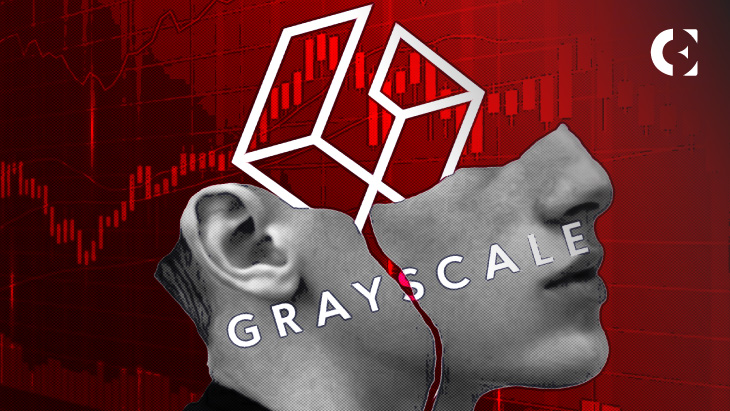- Grayscale set to file next brief in an ongoing lawsuit with U.S. SEC.
- The brief will challenge SEC’s decision to deny conversion of GBTC to a spot Bitcoin ETF.
- Grayscale will consider other ways to reimburse shareholders if the lawsuit fails.
According to a tweet from Grayscale’s chief legal officer Craig Salm, the asset manager is set to file the next brief in its ongoing lawsuit with the United State Securities and Exchange Commission (SEC) on January 13. The brief will challenge the SEC’s earlier decision to deny the conversion of the asset manager’s GBTC (Grayscale Bitcoin Trust) offering to a spot Bitcoin ETF.
Salm noted that Grasycale’s upcoming brief would be centered around whether the SEC “acts arbitrarily and capriciously, and discriminates against issuers” when it rejected Grayscale’s proposal to convert GBTC to spot Bitcoin ETF. He added that an ETF, is the best way for GBTC to track the price of Bitcoin in the long run.
Salm also remained positive about the development, hinting that Grayscale will be looking into other ways to reimburse GBTC shareholders. “We’ve also committed to exploring alternative paths to returning capital to $GBTC shareholders if our legal challenge is not successful,” Salm noted.
Grayscale filed a lawsuit against the SEC on June 29, the same day the SEC denied its application. In its case, Grayscale argued that the SEC’s approval of various bitcoin futures ETFs was arbitrary and violated the Administrative Procedure Act (APA) since it allowed one form of instrument (futures ETFs) but not the other (sport, bitcoin-holding ETFs).
The SEC responded in a filing, stating that “the two products are not the same” due to “fundamental differences in the ability to detect and deter fraud and manipulation.” The SEC has long claimed that the lack of regulatory monitoring of the spot market, such as surveillance-sharing agreements between a “regulated market of significant size” and a regulated exchange, is the chief factor for their refusal of the ETF applications.
The SEC has maintained that spot ETFs might be susceptible to “fraudulent and manipulative conduct,” such as wash trading, price manipulation by “whales,” “malicious control of the Bitcoin network,” hacking, insider trading, “manipulative activity involving purported’ stablecoins,'” and fraud at cryptocurrency exchanges, without adequate regulation.
Disclaimer: The information presented in this article is for informational and educational purposes only. The article does not constitute financial advice or advice of any kind. Coin Edition is not responsible for any losses incurred as a result of the utilization of content, products, or services mentioned. Readers are advised to exercise caution before taking any action related to the company.







